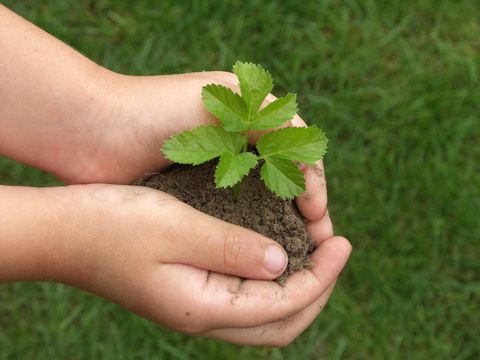 Horticulture is the science, technology, and business involved in intensive plant cultivation for human use. It is practiced from the individual level in a garden up to the activities of a multinational corporation. It is very diverse in its activities, incorporating plants for food (fruits, vegetables, mushrooms, culinary herbs) and non-food crops (flowers, trees and shrubs, turf-grass, hops, medicinal herbs). It also includes related services in plant conservation, landscape restoration, landscape and garden design/construction/maintenance, horticultural therapy, and much more. This range of food, medicinal, environmental, and social products and services are all fundamental to developing and maintaining human health and well-being.
Horticulture is the science, technology, and business involved in intensive plant cultivation for human use. It is practiced from the individual level in a garden up to the activities of a multinational corporation. It is very diverse in its activities, incorporating plants for food (fruits, vegetables, mushrooms, culinary herbs) and non-food crops (flowers, trees and shrubs, turf-grass, hops, medicinal herbs). It also includes related services in plant conservation, landscape restoration, landscape and garden design/construction/maintenance, horticultural therapy, and much more. This range of food, medicinal, environmental, and social products and services are all fundamental to developing and maintaining human health and well-being.
Horticulturists apply the knowledge, skills, and technologies used to grow intensively produced plants for human food and non-food uses and for personal or social needs. Their work involves plant propagation and cultivation with the aim of improving plant growth, yields, quality, nutritional value, and resistance to insects, diseases, and environmental stresses. They work as gardeners, growers, therapists, designers, and technical advisors in the food and non-food sectors of horticulture.
Horticultural scientists focus on the research that underpins horticultural knowledge, skills, technologies, education, and commerce. Horticultural science encompasses all of the pure sciences – mathematics, physics, chemistry, geology, and biology – as well as related sciences and technologies that underpin horticulture, such as plant pathology, soil science, entomology, weed science, and many other scientific disciplines. It also includes the social sciences, such as education, commerce, marketing, healthcare and therapies that enhance horticulture’s contribution to society.
 Karshika Keralam – A site for Agricultural Enthusiasts
Karshika Keralam – A site for Agricultural Enthusiasts